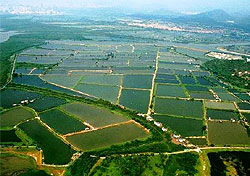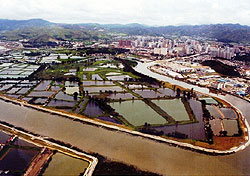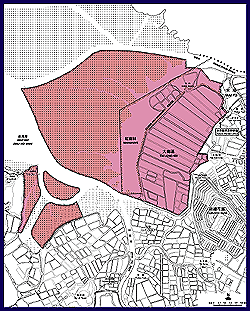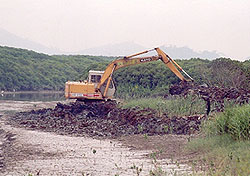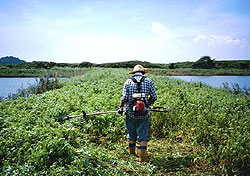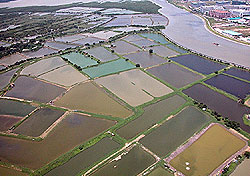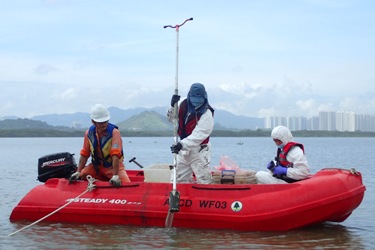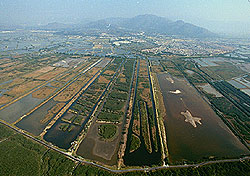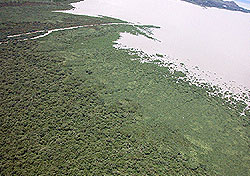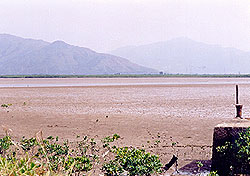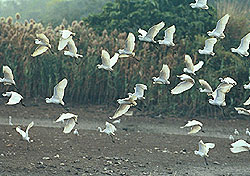Management Work
|
Ramsar Site Management Plan
|
|||
|
|||
|
Subvention Projects The HKSAR government works closely with NGOs including the World Wide Fund for Nature Hong Kong (WWFHK) in wetland conservation and supports such activities by means of government subvention. The WWFHK has assisted the Government to manage the Mai Po Nature Reserve (MPNR) of about 230 hectares since 1984. The prime goals of the management are to conserve, maintain and improve wetland habitats and the biodiversity and key species in the Deep Bay area. WWFHK carries out the daily management of the MPNR based on the Mai Po Management Plan for the Mai Po Marshes Wildlife Education Centre and MPNR which was prepared according to the objectives and restrictions of the management zones of the Ramsar site. Wetland habitats including gei wais and reedbed are managed to provide roosting and foraging sites suitable to the migratory birds. WWFHK offers guided tours to students and the general public under entry quota. Click here for more details.
|
|||
|
Conservation Projects AFCD has commissioned a number of Conservation Projects and Studies to collect baseline information of the ecological conditions of the Mai Po Inner Deep Bay Ramsar Site. The fundamental objective of BEMP is to monitor the ecological conditions of the Ramsar Site so that the ecological values of the area can be maintained and improved through management and other measures. The programme includes monitoring of both core ecological parameters including analyses on benthic fauna, habitat quality and changes and supplementary data namely water quality, sediment quality and sedimentation rate. Apart from the baseline monitoring programme, the Agriculture, Fisheries and Conservation Department conducts other monitoring and research studies at the Mai Po Inner Deep Bay Ramsar Site. These include the monthly waterbird count, shorebird count and monitoring of wintering Black-faced Spoonbill.” |
|||
|
|
||
|
|
||
|
|
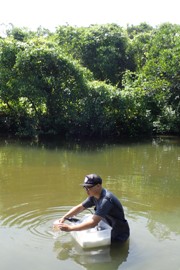 |
![]()
| Back | Back to Top |
![]()
